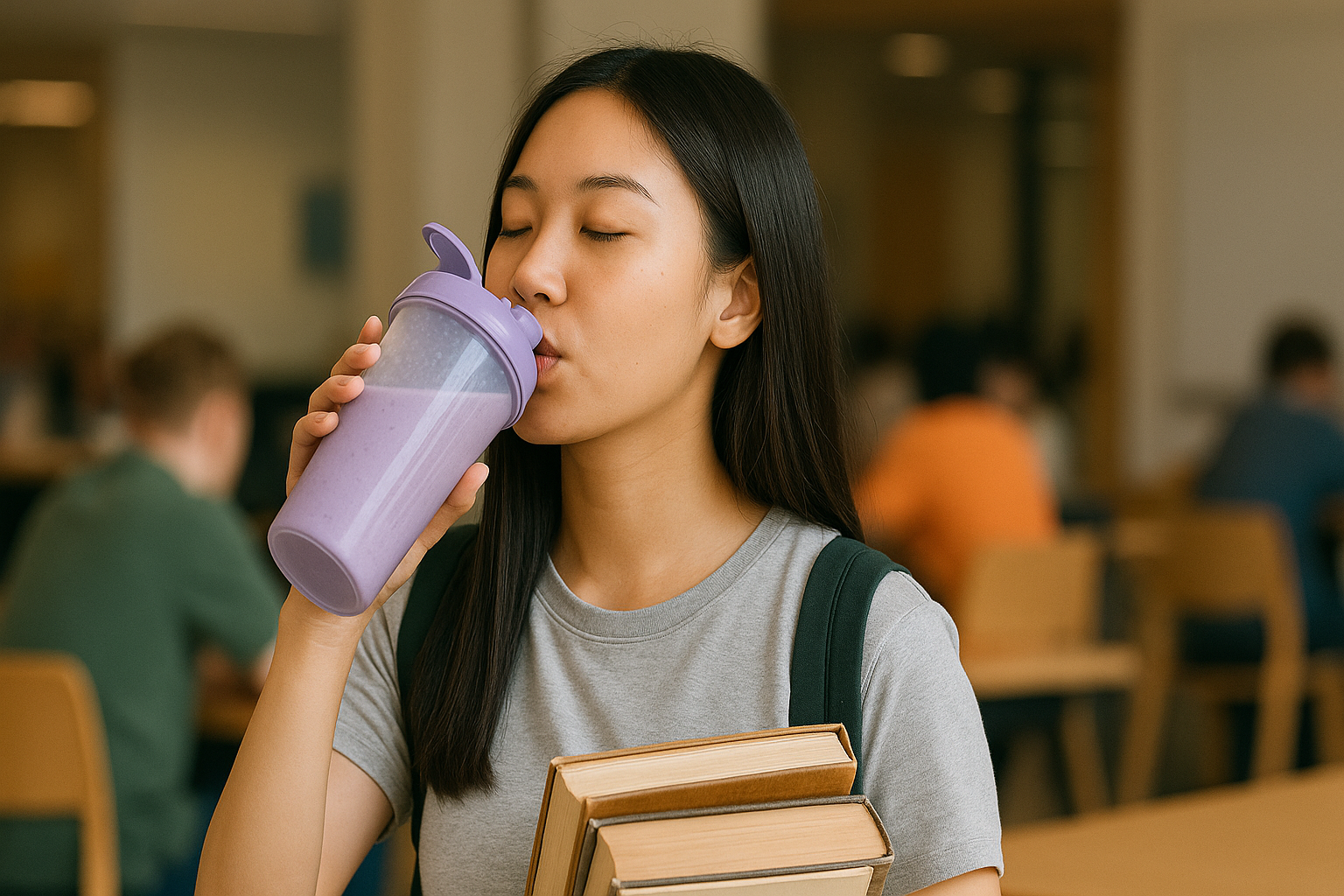As people have become more health-conscious, the demand for protein supplements has skyrocketed. While whey protein, pea protein and soy protein have been around for decades, bubble tea protein has emerged as a new player in the market. But how do they compare to each other? In this guide, we will compare bubble tea protein with other protein supplements and discuss the pros and cons of each option to help you make an informed decision.
Table of Contents
- Introduction
- What is Bubble Tea Protein Powder?
- What are Whey Protein and Soy Protein?
- Nutritional Value Comparison
- Digestibility Comparison
- Cost Comparison of bubble tea protein
- Bubble tea protein taste Comparison
- Convenience Comparison of boba protein
- Health Risks Comparison of bubble tea-inspired protein
- Sustainability Comparison of boba protein powder
- Which One is Right for You?
- Conclusion
- FAQs
Introduction
Protein is essential for building and repairing muscles and maintaining a healthy weight. It is found in many foods, including meat, fish, dairy, and legumes. However, protein supplements have become increasingly popular among athletes, bodybuilders, and people who lead active lifestyles. While whey protein and soy protein have been the go-to options for years, bubble tea protein has recently gained popularity. But how do they stack up against each other? Let's find out.
What is Bubble Tea Protein?
Bubble tea protein is a supplement made from tea leaves, milk, and other natural ingredients. Here at Boba Nutrition, we use a whey isolate or pea protein base for our vegan line. It is a relatively new addition to the protein supplement market and has gained popularity among fitness enthusiasts and health-conscious individuals. Bubble tea protein comes in various flavors, including, boba taro protein powder, and much more, and it is usually mixed with water or milk.
What are Whey Protein and Soy Protein?
Whey protein and soy protein are two of the most popular protein supplements on the market. Whey protein is made from milk, a complete protein containing all nine essential amino acids. On the other hand, soy protein is made from soybeans and is also a complete protein. Our whey line is made from the same whey isolate, but your standard whey protein will not have the yummy boba flavors.
Nutritional Value Comparison
When it comes to nutritional value, all three protein supplements have their strengths and weaknesses. Whey protein is high in protein and contains all nine essential amino acids. It is also low in fat and carbohydrates, making it an excellent option for people trying to lose weight. Soy protein is also a complete protein and a good source of fiber and vitamins. On the other hand, our whey bubble tea protein has the same qualities as the whey protein but is also sweetened with monk fruit instead of sugar and has the unique Boba Nutrition flavor.
Digestibility Comparison
Another important factor to consider is digestibility. Whey protein is the easiest to digest, as it is absorbed quickly by the body. Soy protein is also easy to digest, but some people may experience bloating or gas. Pea protein on the other hand, is an excellent option for those with dietary constraints such a lactose intolerance.
Cost Comparison
Cost is also an important consideration when choosing a protein supplement. Whey protein is the most affordable option, ranging from $1 to $7 per serving. Soy protein is slightly more expensive, ranging from $1.50 to $8 per serving. Bubble tea protein is a neutral to the more expensive option, with prices ranging from $2 to $4 per serving. This is because it is unique and has many additives link monk fruit. Let me tell you. Boba Nutrition is the only bubble tea protein powder that sweetens with monk fruit because it is pricey!!! But at Boba Nutrition, we are here to bring great flavor and all-natural products to the table. Therefore, monk fruit is a must!
Taste Comparison
Taste is subjective, but it is still an essential factor to consider. Whey protein has a neutral taste and can be easily mixed with water or milk. Soy protein has a slightly nutty taste and can be used in various recipes. Bubble tea protein comes in various flavors and has a unique taste that people love.
Convenience Comparison
Convenience is a crucial factor to consider when making choices. For example, when choosing a protein, people often opt for a fast option that can conveniently be scooped and shaken with milk or water. Here at Boba Nutrition, we make sure our flavors are so delicious you won't need to add anything extra to make them tasty.
Ultimately, convenience can make a significant difference in our daily lives and help us achieve our goals more efficiently. That's why some regular proteins often need to be spiced up or included in time-consuming recipes, which is okay once in a while when you aren't in a rush!
Health Risk Comparison
All three protein supplements are generally safe for consumption but have potential health risks. Whey protein has been linked to digestive issues, such as bloating and gas; some people may be allergic to it. Soy protein may interfere with thyroid function in some people. Regular Bubble tea is high in sugar, leading to weight gain and other health issues if consumed excessively, but Boba Nutrition is sweetened with monk fruit instead of sugar!
Check out our article here to see why you should cut sugar from your diet.
Sustainability Comparison
Sustainability is an increasingly important consideration for many people. Whey protein is made from milk, which is a renewable resource. However, milk production can have negative environmental impacts, such as greenhouse gas emissions and water pollution. Soy protein is made from soybeans, a renewable resource requiring less water and land than animal-based protein sources. Bubble tea protein is made from tea leaves, a renewable resource. However, the added milk and sugar may negate any environmental benefits. This is why Boba Nutrition also opted to have a vegan bubble tea match protein and vegan bubble tea taro protein version as well!
Which One is Right for You?
Choosing the right protein supplement depends on your individual needs and preferences. Whey protein may be your best choice if you are looking for an affordable and easily digestible option. If you are looking for a plant-based option high in fiber and vitamins, pea protein may be a better choice. If you want a unique and tasty option, bubble tea protein may be worth trying. Lastly, if you are concerned about the high sugar content, Boba protein powder that is sweetened with monk fruit instead of sugar may be a great option for you.
Conclusion
Protein supplements are convenient and effective for meeting your daily protein needs. Whey protein and soy protein have been around for years and are well-established in the market. Bubble tea protein or boba protein powder is a newer option that has gained popularity among fitness enthusiasts and health-conscious individuals. Each protein supplement has its own strengths and weaknesses, and choosing the right one depends on your individual needs and preferences.
FAQs
- Is bubble tea protein powder a good source of protein?
Bubble tea protein at Boba Nutrition ranges from 24-27g of protein per serving depending on the flavor and if it is boba whey or boba vegan.
- Is whey protein safe for people with lactose intolerance?
Whey protein contains dairy. We suggest if you are lactose intolerant, to opt for our vegan bubble tea protein. However, it is best to consult a healthcare professional before consuming whey protein.
- Can soy protein interfere with thyroid function?
Soy protein contains compounds called goitrogens, which may interfere with thyroid function in some people. However, more research is needed to understand soy protein's effects on thyroid function fully.
- Can protein supplements replace whole foods?
Protein supplements should not be used as a replacement for whole foods. They should be used to supplement a balanced and healthy diet.





